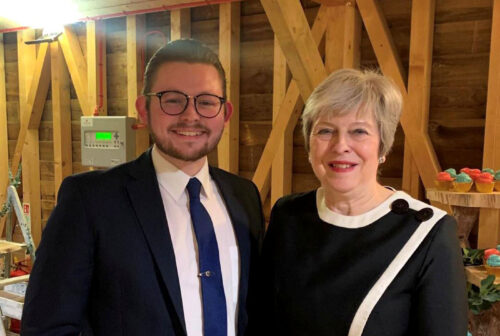Teach first, vote later.

Why political education must come before lowering the voting age.
The Government’s recent announcement that 16- and 17-year-olds will be able to vote at the next general election has sparked a wave of discussion. Supporters argue it’s a bold step toward empowering young people and strengthening democracy. But is it the right move, right now?
As someone who was first elected to local government at the age of 21 and later became one of Thanet District Council’s youngest cabinet members, I know first-hand the value of engaging young people in public life. I’ve spent years advocating for youth voices, even founding our Youth Council to give young people a platform to influence local decisions.
But that’s why I’m cautious. The right to vote is one of the most significant responsibilities in a democracy. It shouldn’t be reduced to a gesture; it must be underpinned by genuine understanding.
Why political education matters
Giving 16- and 17-year-olds the vote sounds progressive, but the reality is that political literacy among young people is worryingly low. A 2022 UK Parliament Education Committee report found that less than 30% of students felt confident in understanding how Parliament works. The British Youth Council’s own consultation revealed that many young people feel uninformed about political parties, policy impacts and how government decisions affect them.
Extending the vote without fixing this gap risks creating an empty reform. If we’re serious about giving young people a voice, we must first give them the tools, that means embedding non-partisan political education much earlier in the curriculum.
Consider this: when 18-year-olds already turn out to vote at far lower rates than older generations, just 47% in the 2019 general election compared to over 70% for those aged 65+, we need to ask whether we’re engaging young people meaningfully or simply widening the democratic gap.
But here’s the other side of the debate
It’s only fair to acknowledge that there are strong arguments in favour of votes at 16. Advocates point out that at 16, young people can work, pay taxes, consent to medical treatment and even join the armed forces. If they can shoulder those responsibilities, why not allow them a say in the decisions that affect their lives?
Supporters also argue that voting younger could build a habit for life, encouraging lifelong democratic participation. Countries like Austria, Scotland and Wales have already extended the vote to 16 with positive results, turnout among 16- and 17-year-olds in Scotland’s independence referendum was higher than many expected.
Finally, this change could help address the generational imbalance in politics. Younger voters often have different priorities, on issues like climate change, housing and education and giving them a voice could make politics more responsive to their needs.
Meanwhile… a quiet change that could silence young voices
While the Government pushes ahead with plans to lower the voting age, another proposed reform could unintentionally exclude younger representation: the shift toward unitary authorities under devolution plans, with a preference for daytime meetings.
As a district councillor with a full-time job, I know how challenging it is to balance public service with employment. If future councils adopt a model where most meetings happen during working hours, we risk creating a system where only those who are retired or work part-time can realistically serve. That means fewer councillors in their 20s, 30s and 40s, undermining the very principle of a representative democracy.
If we truly want younger voices in politics, we need to design structures that allow them to participate – not just at the ballot box but also in decision-making rooms.
So, where do we go from here?
Lowering the voting age could be a positive step – but only if it comes with real investment in civic education and a political system that welcomes younger representatives. Otherwise, we risk creating a hollow reform while simultaneously making it harder for young people to serve in local government.
Before we rush to change the law, let’s make sure we’re equipping the next generation to use their vote wisely and ensuring they can take a seat at the table too.
